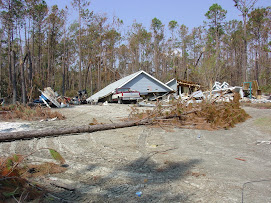After I read yesterday's Reuters story on the fight to reform the flood program I thought it strange it contained this paragraph which I knew to be inaccurate:
The Senate bill would extend the NFIP for five years and improve flood maps used in the program. But a vote by the full Senate on the bill has been blocked by lawmakers from Louisiana who are concerned that it would boost insurance rates there.
Fast forward to today and this Reuters story which contains almost the exact same wording for the reason for the hold on the senate version of NFIP re authorization:
The NFIP's post-Katrina debt would be forgiven under a bill approved in October by the Senate Banking Committee. The Senate bill would extend the NFIP for five years. But a vote by the full Senate on it has been blocked by Louisiana lawmakers who are concerned it would boost insurance rates in their state.
The second story, concerning the release of the GAO report on the National Flood Insurance Program, boiled the report down the following:
The GAO, the investigative arm of Congress, said questions remain about the Federal Emergency Management Agency's handling of flood-damage claims processed by private insurers under the National Flood Insurance Program (NFIP).
The GAO urged Congress to empower the agency to examine both wind and water claims data related to hurricane damages. It also said state regulators need to strengthen licensing and training requirements for insurance adjusters.
Alabama Republican Rep. Spencer Bachus said the GAO report contains "sensible recommendations" and deserves further discussion in the House of Representatives Financial Services Committee, where he is the ranking Republican member.
However, while Rep. Bachus is the ranking Republican member of the committee Mr. Drawbaugh evidently did not see fit to report on the reactions of the Democrats running the House Financial Services Committee to the GAO report they ordered. Curious.
I also found it equally strange that Mr Drawbaugh as did not report on the "inherent conflict of interest" in the current system of private wind insurers adjusting flood claims or the problems associated with damage related to multi peril catastrophes like hurricanes contained in the GAO report:
Insurance coverage gaps and claims uncertainties can arise when coverage for hurricane damage is divided among multiple insurance policies. Coverage for hurricanes generally requires more than one policy because private homeowners policies generally exclude flood damage. But the extent of coverage under each policy depends on the cause of the damages, as determined through the claims adjustment process and the policy terms that cover a particular type of damage. This process is further complicated when the damaged property is subjected to a combination of high winds and flooding and evidence at the damage scene is limited. Other claims concerns can arise on such properties when the same insurer serves as both NFIP’s write-your-own (WYO) insurer and the property-casualty (wind) insurer. In such cases, the same company is responsible for determining damages and losses to itself and to NFIP, creating an inherent conflict of interest.
Though we are not so called "professional" news reporters at the Insurance Issues Forum, I was able to land a copy of Senator Vitter's letter to Senators Dodd and Shelby by contacting Gene Taylor's office and simply asking for it. Since Mr. Drawbaugh did not see fit to speak with either of Louisiana Senators or HR3121 sponsor Rep Gene Taylor I guess it is understandable, though somewhat unprofessional that he reported a false reason for the hold on the Senate re authorization of the National Flood Insurance Program. Concerns over "boosting insurance rates" was not the reason Senator Vitter had a problem with the Senate version of the bill, rather:
I believe any legislation reforming the flood insurance program must make an increase in the maximum coverage levels available to policyholders. As you know, your bill does not do this. The current coverage levels have not been increased since 1994. With inflation and increased home prices since that time, the current coverage levels are severely outdated. The bills passed by the U.S. House of Representatives last and this Congress increased the current maximum levels of $250,000 for residential properties and $500,000 for non-residential properties to $335,000 and $670,000 respectively. These reasonable adjustments in the coverage levels would bring more certainty and affordability to the insurance market.
Also, flood insurance reform legislation should allow policyholders new lines of optional coverage, including coverage for business interruption and full replacement costs of contents. Businesses in Louisiana continue to suffer as we recover from Hurricanes Katrina and Rita, and skyrocketing insurance costs and fewer providers offering coverage remain among the most significant barriers to full economic recovery. These new coverage options, which could be offered at market rates so as not to add any additional financial strain on the program, would go a long way in providing some stability and affordability to the insurance market.
Additionally, I believe Congress must address the overall insurance crisis along the Gulf Coast centered on the lack of coverage options and affordable rates for wind damage. Lack of available or affordable general liability coverage including wind coverage is now one of the single biggest obstacles to recovery. Rates have skyrocketed well beyond what seems necessary to cover the risk and are not abating. Either wind coverage should be added to the National Flood Insurance Program at market rates as the House-passed bill does, or we must take other action outside the flood insurance program to address the broader insurance crisis. This could include a catastrophic backstop, similar to what we have for terrorism risk insurance.
We stand ready to correct any factual inaccuracies we find in hard news reporting on this issue, which impacts so many along America's coastlines. Reuters owes us a correction.
sop

No comments:
Post a Comment